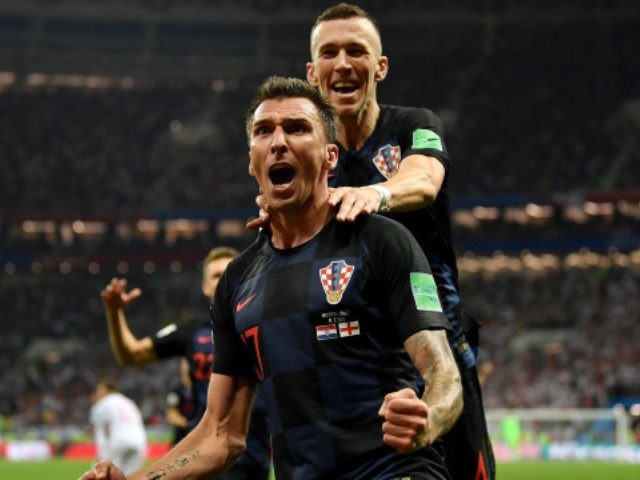On Sunday, the World Cup battle between Croatia and France will test which team has what it takes to be the best football team on the planet.
Though, the underdog Croatians can draw on a fighting spirit unique to those who have survived a bloody civil war as children, and others who were forced to flee their homeland.
“For Croatian football and for Croatia as a country, this is history being written,” coach Zlatko Dalic said after his team beat England 2-1 in a second overtime, according to the L.A. Times. “We have our heart; we have our pride, we have our players.
“We are a nation of people who never give in, who are proud and who have character,” Dalic said. “There’s no weakness in a team that is in the final.”
The Daily Mirror noted how surviving the “bloodbath that was the Balkan Wars,” may have fueled this generation of Croats with a unique desire for victory.
As team captain Luka Modric explained:
That was the latest in a series of conflicts which has moulded this young nation into the hard men of Europe. And Croatia’s biggest star, Luka Modric – ironically just 5ft 5in in this team of giants – suffered horrors worse than his teammates.
The Real Madrid midfielder, who helped his team to four Champions League victories in the past five years, was just 6 when his remote hamlet of Modrici in central Croatia was plunged into civil war.
Modric, 32, was named after the grandfather that cared for him while his parents worked in a factory. That grandfather, who shares his name, was executed in 1991 by Serbian militia and their house burnt to the ground, according to the Mirror.
The British tabloid also reported that Modric and his sister Jasmina spent seven years in hotels without electricity or running water — a stunning contrast to the life he now lives as a millionaire in a free country with his wife and three children.
“Modric’s former Tottenham Hotspur teammate and best friend Vedran Corluka, also 32, saw his small town of Modran in modern-day Bosnia torn apart,” the Mirror reported.
Liverpool defender Dejan Lovren, was 3 when his family fled Croatia to join his grandfather in Germany, according to the Mirror.
“I remember the wail of sirens,” Lovren said. “I was frightened of a bomb falling on us. One of my uncles was slaughtered with a knife.”
Croatian goalkeeper Danijel Subasic, 33, recalled growing up in Zadar when the war began and hiding as bombs fell from the sky.
Two of the team’s other stars — Juventus striker Mario Mandzukic and Barcelona’s Ivan Rakitic — grew up in exile in Germany and Switzerland after fleeing Croatia, the Mirror reported.
The Times reported the intriguing history of the Croatian and English teams at World Cup matches:
Before Croatia, England, in 1990, had been the last team to play three consecutive extra-time games in a World Cup but it lost in the semifinals. Wednesday marked its first trip back to the final four since then and it lost again, this time to a team that was breaking England’s own record.
For Croatia, which reached the semifinals in its first World Cup in 1998 — where, coincidentally, it lost to France – making it to the final is a remarkable achievement for a team that is younger than 16 players on its roster.
“We all know what was at stake, how important a semifinal is for a small country such as Croatia,” midfielder Ivan Rakitic said in the Times report. “We started slowly, but we showed our character.”
Follow @PennyStarrDC on Twitter

COMMENTS
Please let us know if you're having issues with commenting.